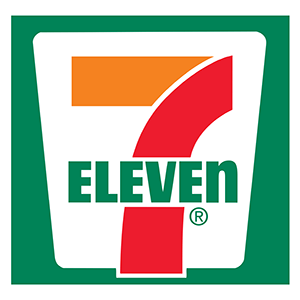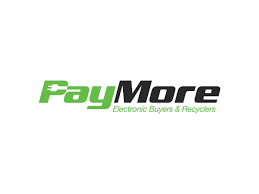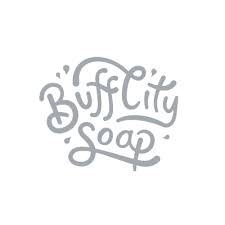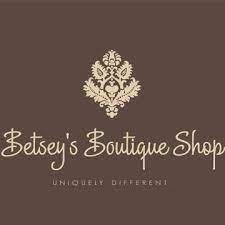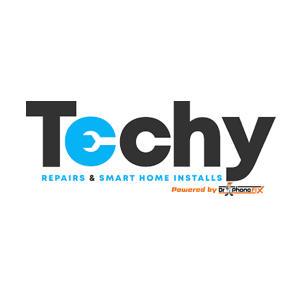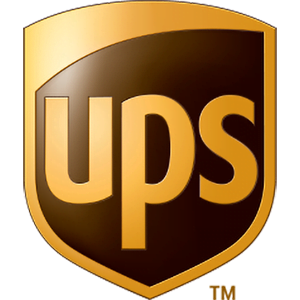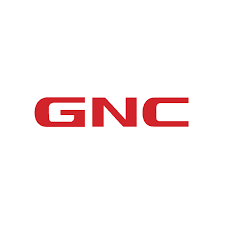Best FMCG Franchise Opportunities for 2025
Explore the Best FMCG Franchise Opportunities for 2025 and unlock the potential of investing in high-demand essentials like food, beverages, and personal care. Discover proven brands, scalable models, and insights to fuel your business success!
Table of Contents:
The FMCG (Fast-Moving Consumer Goods) sector continues to thrive due to high demand for essential products like food, beverages, personal care, and household items. With the right franchise, investors can tap into a resilient industry that offers consistent growth potential, driven by everyday consumer needs and reliable purchasing habits.
In this article, we’ll discuss the pros and cons of FMCG franchises and explore some of the best FMCG franchise opportunities for 2025. Our detailed insights will highlight brands with proven business models, strong market presence, and competitive advantages. This guide will help you make an informed decision and select a franchise that aligns with your investment goals.
What is an FMCG franchise?
The FMCG (Fast-Moving Consumer Goods) industry encompasses products that are sold quickly and at relatively low cost, including food, beverages, toiletries, cleaning supplies, and over-the-counter medications. These essential items have high turnover rates due to frequent consumer demand. Known for their short shelf life, FMCG products drive consistent sales, making this category a dynamic, resilient, and lucrative market for franchise investments.
Franchise models in the FMCG industry are built on the success of established brands with a strong history of delivering essential goods. These franchises benefit from streamlined operations, trusted supply chains, and proven marketing strategies. Many leading FMCG franchises have decades of experience, offering investors the chance to leverage well-known brands and consumer loyalty. This combination ensures stability, scalability, and potential for long-term growth in a competitive market.
How to open an FMCG franchise?
Opening an FMCG franchise offers a chance to benefit from a tested business model, established brand recognition, and comprehensive operational support. The process usually includes researching potential franchises, obtaining financing, signing a franchise agreement, and completing required training programs. Entrepreneurs should also understand local regulations and market trends. Resources like the International Franchise Association and franchise directories can provide valuable insights. Tools such as Vetted Biz can simplify the process by identifying top FMCG franchise opportunities.
FMCG franchise market industry statistics
The FMCG industry is a cornerstone of global commerce, with an estimated annual market value exceeding $10 trillion worldwide. In the U.S. alone, the FMCG sector generates approximately $1.5 trillion in sales annually, driven by consistent demand for everyday essentials like food, beverages, and household goods.
Investing in an FMCG franchise offers attractive potential returns. The average payback period for an FMCG franchise typically ranges between 2 to 4 years, depending on brand recognition, location, and market demand. This relatively short payback period makes FMCG franchises appealing to investors seeking quicker returns on their investment.
The sales-to-investment ratio in the FMCG sector generally ranges from 1.5:1 to 3:1. This means for every dollar invested, franchisees can expect to generate $1.50 to $3.00 in sales, making FMCG franchises a promising choice for sustainable revenue.
The cost of opening an FMCG franchise varies based on the brand and scale of operations. On average, franchise costs range between $100,000 and $500,000, covering initial fees, inventory, marketing, and operational expenses. These estimates make FMCG franchises accessible for both new and experienced investors.
Metric – Average Estimate
- Payback Period: 2-5 years
- Sales-to-Investment Ratio: 1.5:1 –3:1
- Franchise Cost: $100,000 to $500,000
FMCG franchise segments
- Food and Snacks Includes packaged foods, snacks, and ready-to-eat meals. High turnover due to daily consumer needs, making it a consistent and profitable segment.
- Beverages Covers soft drinks, bottled water, tea, coffee, and energy drinks. Known for strong brand loyalty and frequent repeat purchases.
- Personal Care Encompasses skincare, hygiene products, cosmetics, and toiletries. Driven by essential needs and evolving consumer trends for wellness and self-care.
- Household Cleaning Products Includes detergents, disinfectants, and cleaning supplies. Consistent demand as consumers regularly purchase these products to maintain hygiene and cleanliness.
- Health and Wellness Covers vitamins, supplements, and over-the-counter medications. A growing segment driven by increasing awareness of health and preventive care.
Pros
Steady Cash Flow and High Turnover: FMCG products—like food, snacks, and personal care items—are consumed quickly, leading to frequent repeat purchases and consistent cash flow.
Lower Customer Acquisition Costs: Customers naturally seek out FMCG products, reducing the need for extensive marketing efforts and lowering customer acquisition costs.
Scalability and Repeat Business: The necessity of FMCG products ensures repeat business, making it easier to scale operations by opening multiple locations with a proven model.
Predictable Demand and Market Resilience: FMCG products are essentials, maintaining stable demand even during economic downturns, making these franchises less vulnerable to market volatility.
Simple and Efficient Operations: Many FMCG franchises have straightforward processes, simplifying staff training and management, which is ideal for first-time franchisees.
Cons
Tight Profit Margins: FMCG products often sell at low prices, leading to smaller profit margins. Franchisees must rely on high sales volume to remain profitable.
Inventory Management Challenges: Fast turnover requires careful inventory control to avoid stockouts or overstocking, which can impact cash flow and operational efficiency.
High Competition: The FMCG sector is highly competitive, with numerous established brands and independent retailers vying for the same customer base.
Dependence on Brand Reputation: Franchisees are reliant on the franchisor’s reputation. A brand’s negative publicity or missteps can directly impact business performance.
Economic Sensitivity to Costs: Fluctuations in supply chain costs, raw material prices, or transportation fees can impact profitability due to the low-margin nature of the industry.
10 best FMCG franchises
Vetted Biz has curated a list of the top 10 FMCG franchises, ranked by their 3-year growth. This selection showcases a range of franchise models, from convenience stores to personal care and household product retailers, providing diverse investment opportunities suited to various markets and business objectives.
1. 7-Eleven Micro Market
7-Eleven is a globally recognized leader in convenience retail, known for offering snacks, drinks, groceries, and personal care items. Its Micro Market franchise model focuses on compact, unmanned convenience kiosks tailored for workplaces, apartment complexes, and similar locations, ensuring 24/7 accessibility and streamlined operations. With 24 U.S. locations, 23 of which are franchised, it has demonstrated impressive scalability.
The 7-Eleven Micro Market franchise boasts a remarkable 3-year unit growth rate of 2200%, showcasing its rapid expansion potential. Financial requirements include an initial franchise fee of $25,000 and an estimated total initial investment ranging from $42,000 to $143,000. This low-cost entry, paired with 7-Eleven’s robust brand support, makes it an attractive choice for aspiring franchisees. To learn more about 7-Eleven’s costs, fees, and FDD check out this article.
2. PayMore
PayMore is a rapidly growing electronics resale franchise specializing in buying, selling, and trading new and used electronics such as smartphones, laptops, gaming consoles, and accessories. The brand meets the increasing demand for affordable tech products and sustainable consumer practices. With 21 U.S. locations, 20 of which are franchised, PayMore has demonstrated impressive scalability.
PayMore’s franchise model boasts a remarkable 3-year unit growth rate of 1900%, indicating strong market demand and expansion potential. Financial requirements include an initial franchise fee of $35,000, an estimated total initial investment ranging from $139,000 to $267,000, and a 5% royalty fee. PayMore offers franchisees the opportunity to enter the booming electronics resale market with extensive support and a proven business model.
3. Natural Life
Natural Life is a retail franchise known for its assortment of bohemian-inspired clothing, home decor, accessories, and gifts. The brand resonates with consumers seeking unique, feel-good products that promote positivity and creativity. With 19 U.S. locations, 13 of which are franchised, Natural Life offers a niche opportunity in the lifestyle and retail space.
The franchise model has seen a 3-year unit growth rate of 550%, reflecting significant expansion. Financial requirements include an initial franchise fee of $40,000, an estimated total initial investment ranging from $205,000 to $354,000, and a 5% royalty fee. Natural Life’s strong brand identity and curated product lines make it an appealing investment for those interested in creative, lifestyle-focused retail.
4. Buff City Soap
Buff City Soap is a fast-growing retail franchise specializing in handmade, plant-based soaps, bath products, and body care items. Known for its customizable, chemical-free products, the brand appeals to consumers seeking natural alternatives for personal care. With 271 U.S. locations, 262 of which are franchised, Buff City Soap has established itself as a leading name in the handmade soap industry.
The franchise has achieved an impressive 3-year unit growth rate of 345%, highlighting strong expansion potential. Financial requirements include an initial franchise fee of $50,000, an estimated total initial investment between $395,000 and $1.28 million, and a 6% royalty fee. Buff City Soap offers franchisees a unique opportunity to join the booming natural personal care market with solid support and a proven business model. Check out this video to learn in more detail about Buff City Soap’s costs and profits.
5. Betsey’s Boutique Shop
Betsey’s Boutique Shop is a women’s fashion retail franchise known for offering stylish, affordable clothing, accessories, and unique boutique items. The brand focuses on delivering a personalized shopping experience with carefully curated collections that cater to modern fashion trends. With 12 U.S. locations, 4 of which are franchised, the brand is steadily expanding its boutique presence.
The franchise has achieved a 3-year unit growth rate of 300%, reflecting strong potential for growth. Financial requirements include an initial franchise fee of $30,000, an estimated total initial investment ranging from $125,000 to $221,000, and a 6% royalty fee. Betsey’s Boutique Shop provides a compelling opportunity for investors passionate about fashion retail and boutique-style customer experiences.
6. Techy
Techy is a growing electronics repair and retail franchise specializing in smartphone, tablet, computer, and gaming console repairs. It also offers sales of refurbished devices and accessories. Known for its fast, reliable service and knowledgeable technicians, Techy caters to the increasing demand for affordable tech repairs and upgrades. The franchise currently operates 56 U.S. locations, 46 of which are franchised.
With a 3-year unit growth rate of 59%, Techy shows steady expansion in the tech repair industry. The franchise model supports investors with comprehensive training, marketing, and operational guidance. Financial requirements include a royalty fee of 8%. Techy offers an attractive opportunity for entrepreneurs looking to capitalize on the growing need for tech repair and resale services.
7. Minuteman Press
Minuteman Press is a leader in the print and design industry, catering to businesses and individuals with fast-turnaround printing, copying, and graphic design services. Known for its quality and efficiency, Minuteman Press also fulfills FMCG-like demand for printed materials, promotional products, and office supplies. With 743 U.S. locations, all franchised, it is a well-established franchise model with nationwide reach.
The franchise boasts a 3-year unit growth rate of 7%, reflecting steady expansion. Financial requirements include an initial franchise fee of $41,750, an estimated total initial investment ranging from $81,000 to $221,000, and a 6% royalty fee. Minuteman Press offers franchisees a proven model with strong brand support in the ever-relevant print and marketing industry. Learn more about Minuteman Press’s costs, fees, and FDD.
8. The UPS Store
While not a traditional FMCG, The UPS Store offers essential business and mailing services, including shipping, packaging, printing, and office supplies. It caters to both individuals and businesses, meeting high-demand, frequently needed services. With 5,234 U.S. locations, 5,232 of which are franchised, The UPS Store has built a robust, franchise-driven network with strong brand recognition.
The UPS Store has achieved a 3-year unit growth rate of 6%, indicating steady expansion. Financial requirements include an initial franchise fee of $19,950, an estimated total initial investment ranging from $94,000 to $496,000, and a 5% royalty fee. This proven business model and comprehensive franchisor support make The UPS Store a reliable investment for those interested in service-based franchises. For a more detailed analysis of The UPS Store’s costs, fee, & FDD click here.
9. GNC
GNC is a leading brand in the health and wellness retail space, specializing in vitamins, supplements, and other health products. With a reputation for providing high-quality, science-backed products, GNC caters to health-conscious consumers seeking to improve their fitness, nutrition, and overall well-being. Currently, GNC operates 2,305 U.S. locations, 750 of which are franchised.
Despite a 3-year unit growth rate of -4%, GNC remains a trusted name with a solid customer base. The franchise model offers extensive support and brand recognition. Financial requirements include an initial franchise fee of $10,500, an estimated total initial investment between $32,000 and $504,000, and a 6% royalty fee. GNC’s focus on health and wellness makes it a compelling option for franchisees passionate about fitness and nutrition. Learn more about GNC’s costs, fees, and FDD.
10. Circle K
Circle K is a well-established global brand in the convenience store industry, offering a wide range of on-the-go products like beverages, snacks, fuel, and household essentials. Known for its customer-friendly service and extensive product offerings, Circle K stores are designed to meet the needs of busy consumers looking for quick and convenient purchases. With 6,063 U.S. locations and 586 franchised units, it holds a significant market presence.
The franchise model benefits from Circle K’s strong brand recognition and operational support. The franchise has seen a declining 3-year unit growth rate at –9%. Financial requirements include an initial franchise fee of $12,500, an estimated total initial investment ranging from $309,000 to $2.74 million, and a 5% royalty fee. This makes Circle K an appealing option for investors looking for a proven business in the convenience retail sector. For a more detailed analysis of Circle K’s costs, fee, & FDD click here.
Conclusion
The FMCG sector presents promising opportunities for aspiring franchisees due to its consistent demand for essential goods. Products such as food, beverages, personal care items, and household supplies are necessities, driving frequent repeat purchases and ensuring steady cash flow. This reliability makes FMCG franchises appealing to those seeking business stability. Franchise models in this industry are designed with streamlined operations, brand support, and efficient supply chains, making them accessible to both new and experienced investors. The scalability of these franchises allows entrepreneurs to expand successfully by replicating proven systems and processes. Additionally, the sector’s resilience to economic fluctuations offers security, as consumer demand for essential products remains constant even during challenging times. While the FMCG industry can be highly competitive, strong brand recognition and operational support provided by franchisors help mitigate risks. Ultimately, investing in an FMCG franchise provides a structured pathway to business ownership, backed by established systems and the ever-present need for everyday goods.

